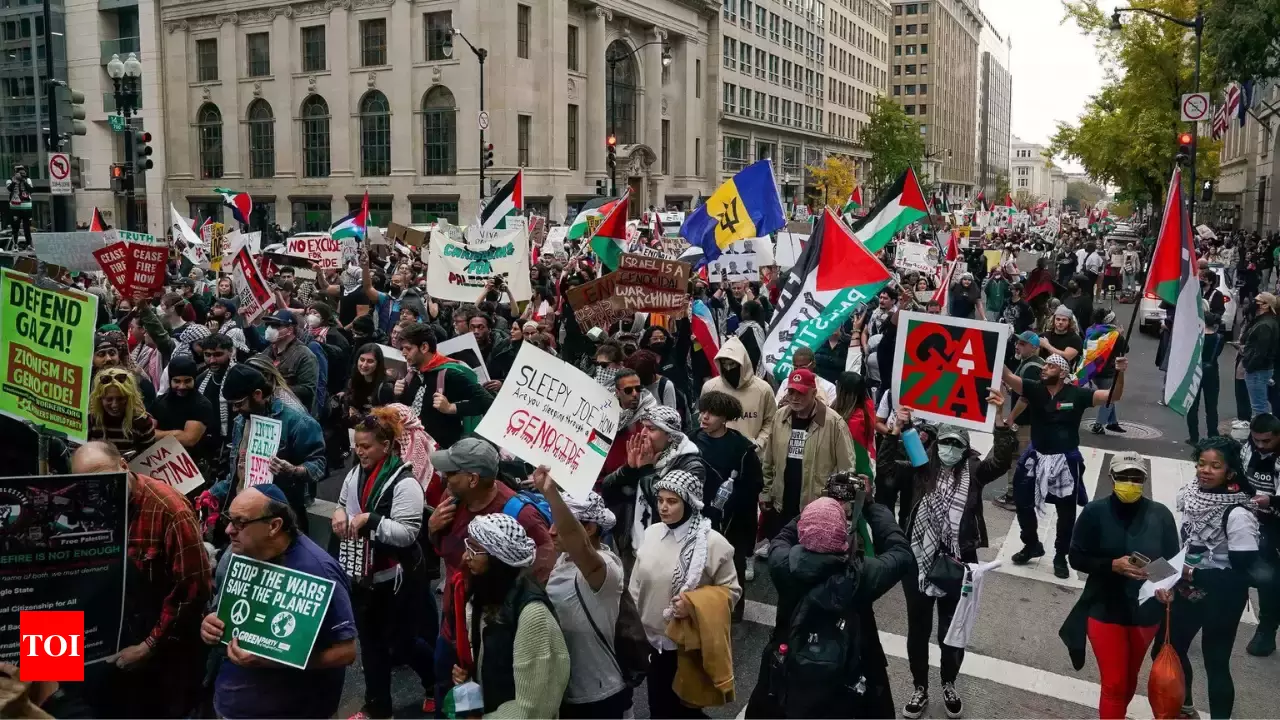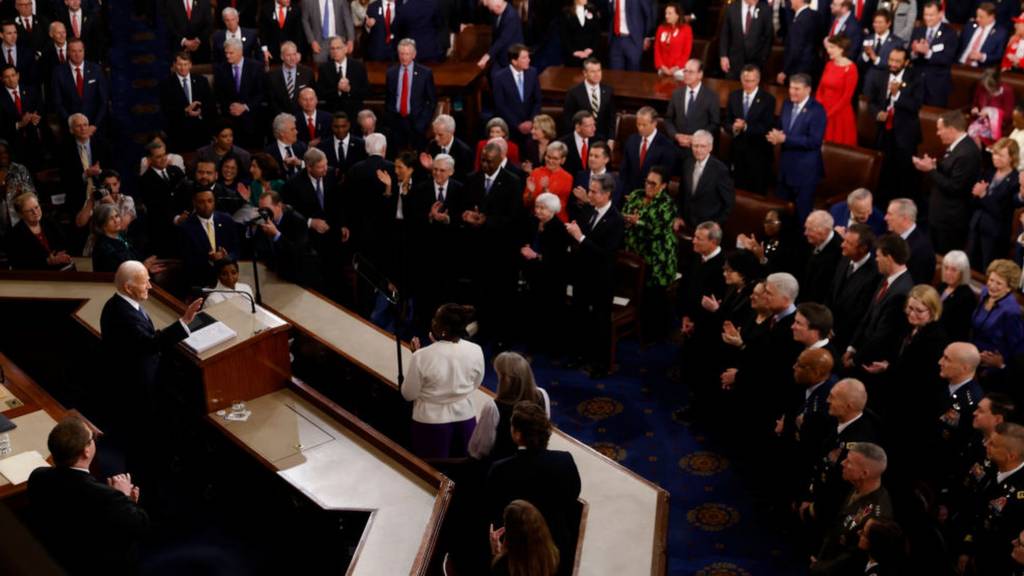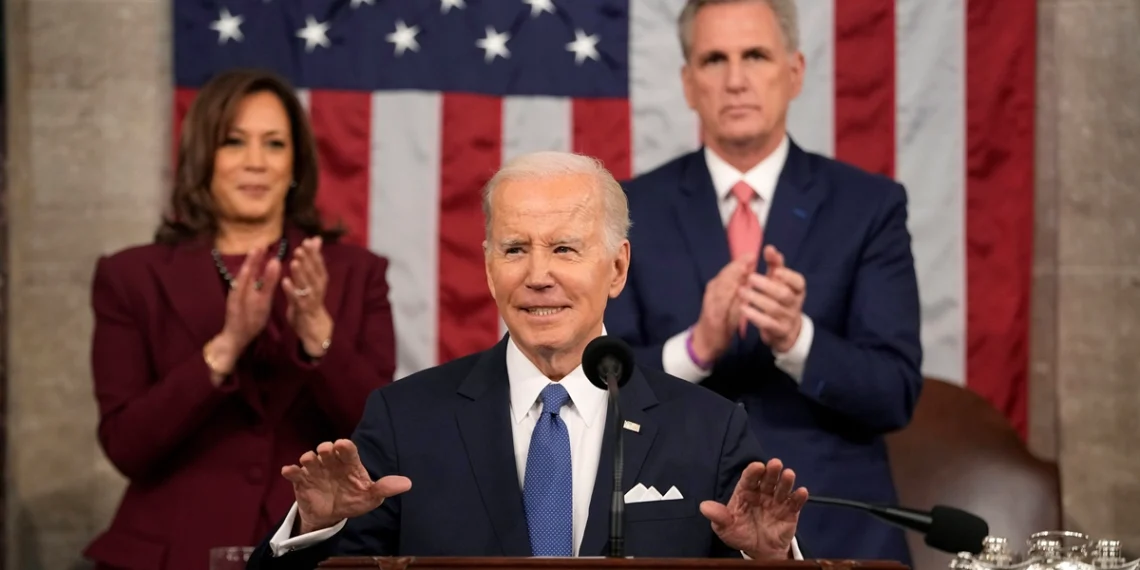President Joe Biden‘s State of the Union address stirred demonstrations nationwide, as activists rallied for decisive action concerning the Israel-Hamas conflict and the humanitarian crisis in Gaza. In Boston and Los Angeles, protesters obstructed traffic, resulting in over 50 arrests in Boston alone.
Ahead of Biden’s speech, demonstrators gathered near the White House, expressing a resounding call for change. Ahmad Abuznaid, the executive director of the U.S. Campaign for Palestinian Rights, underscored the urgency of the situation, declaring, “Enough is enough.”

The Council on American-Islamic Relations highlighted the critical juncture of Biden’s address, urging tangible steps to alleviate Palestinian suffering and regain support from disenchanted segments.
Meanwhile, senior U.S. officials hinted at forthcoming plans to establish a port in Gaza for the distribution of humanitarian aid, aligning with the thematic focus of Biden’s speech.
The atmosphere surrounding Biden’s address was further heightened by the presence of Palestinian flags and chants for an immediate ceasefire on street corners. Notably, some Democrats in Congress opted to wear pins bearing the word “ceasefire” as a visible statement of solidarity.
Representative Cori Bush of Missouri invited Palestinian dentist Intimaa Salama as her guest, signaling a commitment to raising awareness about the ongoing crisis.
In recent weeks, protests demanding a ceasefire have proliferated across the U.S., with demonstrators targeting Biden’s speeches, campaign stops, and events attended by other political figures.

The widespread mobilization underscores the growing public demand for urgent action to address the Israel-Hamas conflict and alleviate the humanitarian plight in Gaza.
Amidst the protests, Biden’s speech during Super Tuesday garnered overwhelming support from Democratic nominating contests, although dissenting voices in Minnesota and other states expressed reservations over his staunch backing of Israel.
The demonstrations serve as a poignant reminder of the pressing need for effective diplomatic intervention to achieve lasting peace in the region.





